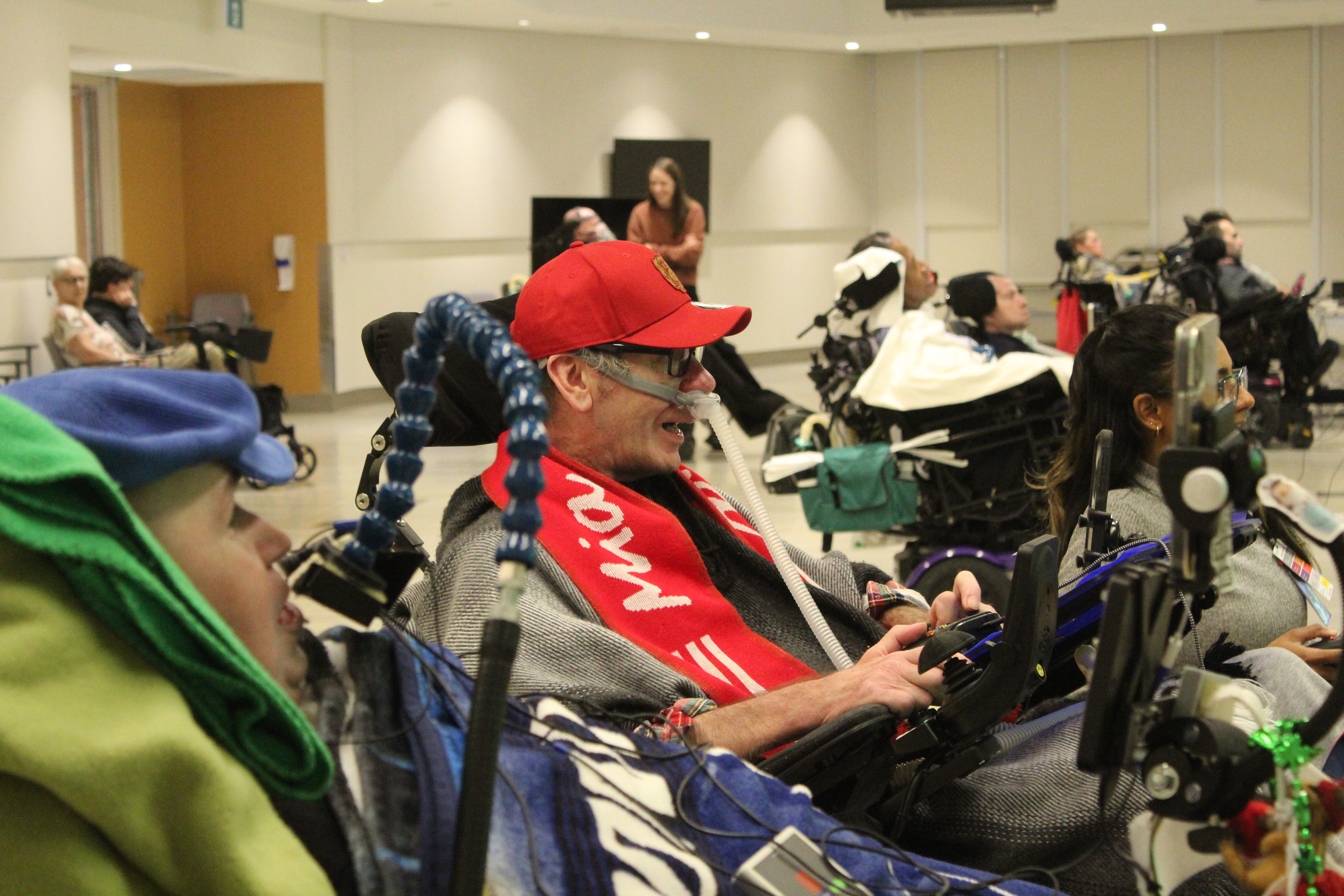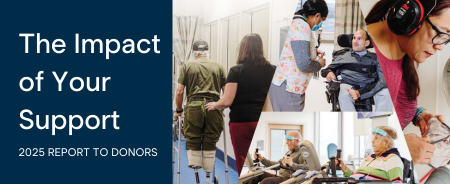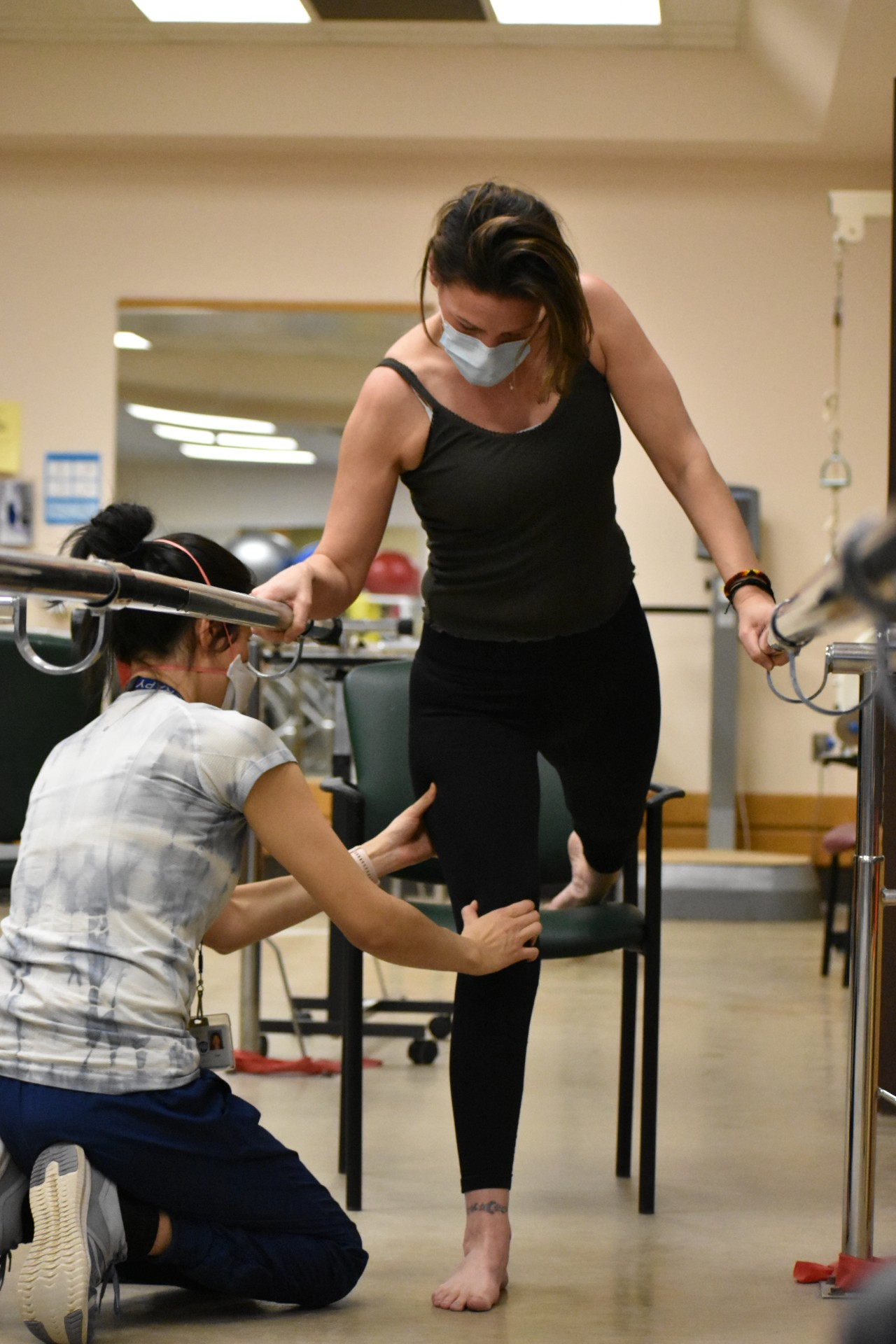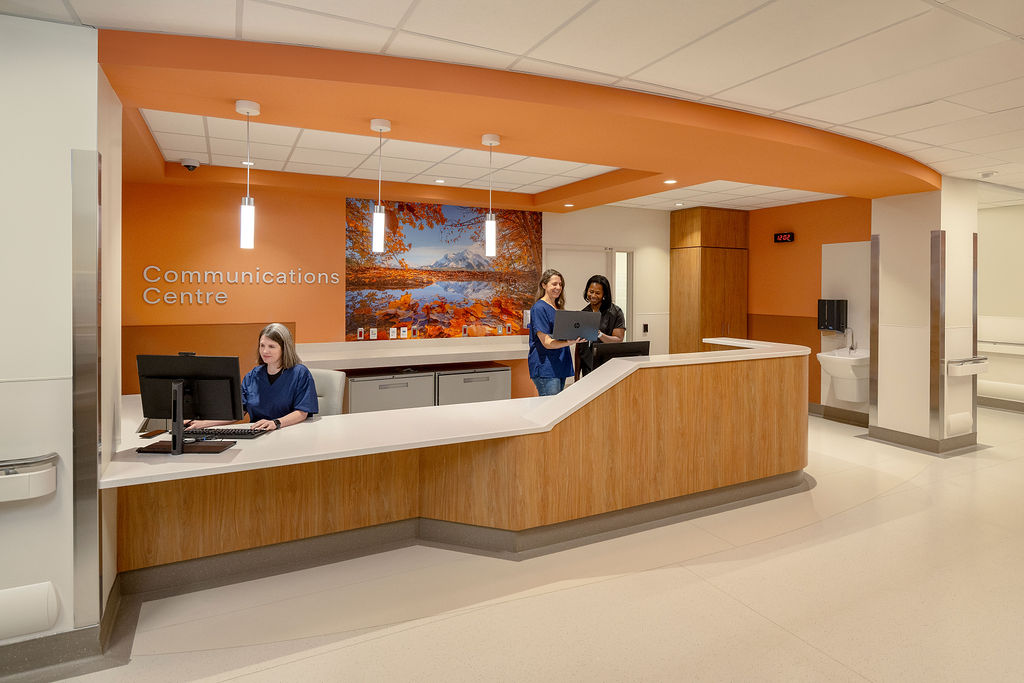
Adaptive Gaming Program brings videogaming to patients of all abilities
“It Gets My Heart Going”
Adaptive Gaming Program brings videogaming to patients of all abilities
Videogaming is enormously popular, and not just with youth. In fact, a 2022 survey found that 54% of Canadians play videogames.
It comes as no surprise then that for inpatients at UHN’s West Park, videogaming is a popular pastime.
But what about patients who have limited — or no — use of their arms or hands?
That’s where the innovative Adaptive Gaming Program comes in. Using customized adaptive set-ups, many of which were created in our Biomedical Engineering Service, the program enables patients of all abilities to play.
The program was developed through a collaboration between West Park’s Occupational Therapy and Recreation Therapy services, to improve patients’ quality of life, allow them to participate in a widely popular activity and help reduce social isolation. Recreation Therapy continues to run the program, which is generously supported by Scotiabank.
“The gaming program enhances patients’ self-confidence in an environment that encourages positive social interactions,” says recreation therapist Zianna Manji.
Most video games, designed for able-bodied individuals, require a minimum of three buttons to play, so for patients who don’t have use of their hands, an adaptive solution must be found.
When a patient expresses an interest in video gaming, a therapist works with them to determine what equipment they’re able to use and what their abilities allow them to do.
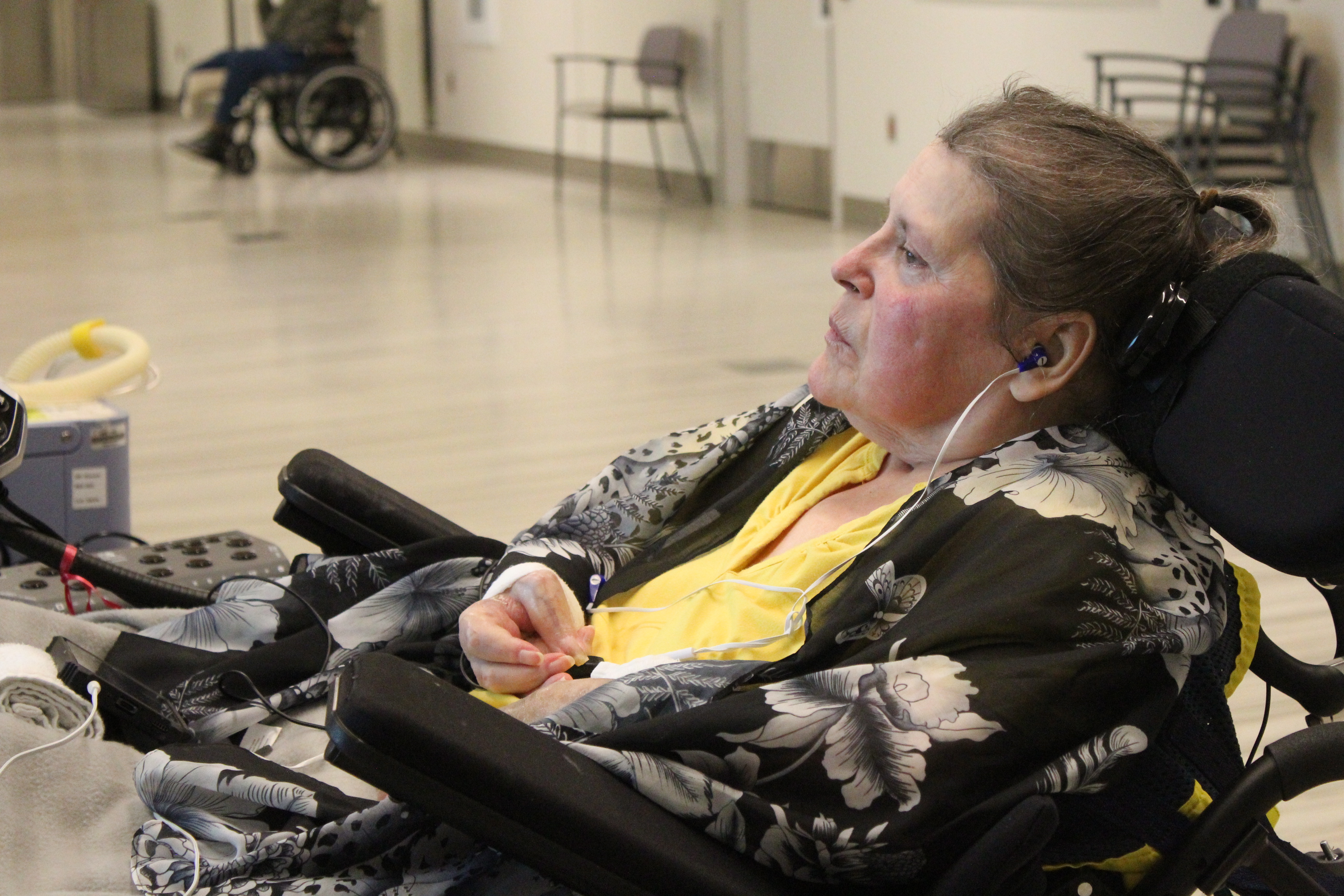
Rachel Armstrong, an inpatient since 2019, has very limited mobility in her hands, so the team set her up with the “smallest controls they had,” Rachel says. “The other ones are too big, or they move away from my hands, so we had to find something that would stay put.”
With the small controllers under her hands, and a button on the headrest of her wheelchair, which she taps with her head to use, she’s ready to play.
And she plays well, coming in the top three in repeated games of Mario Kart. “It gets my heart going,” she says of playing.
Karl Paitz, a patient with ALS, was reluctant to join the program at first. It was another patient, Nic Leocadio, who Karl says “dragged me down” to attend the gaming sessions, watching at first, and then joining the program. Now, Karl is a devoted attendee of the program where he and Nic — who plays by using his tongue — battle against each other in FIFA 2023.
Rachel says that the program helped her to get to know her fellow patients and feel comfortable exploring other programs. “I’m sort of an introvert,” she says. “When I first came to West Park, I thought ‘I don’t know if I want to do all these activities.’ But then they asked about video games I said, ‘okay I’ll do that.’ And then I just started joining in other programs. Now I’m coming together with people who enjoy the same things I do.”
Karl sums up the patients’ feelings about the adaptive gaming program. “I know I can speak for everyone, that everybody is very, very grateful for the program.”
